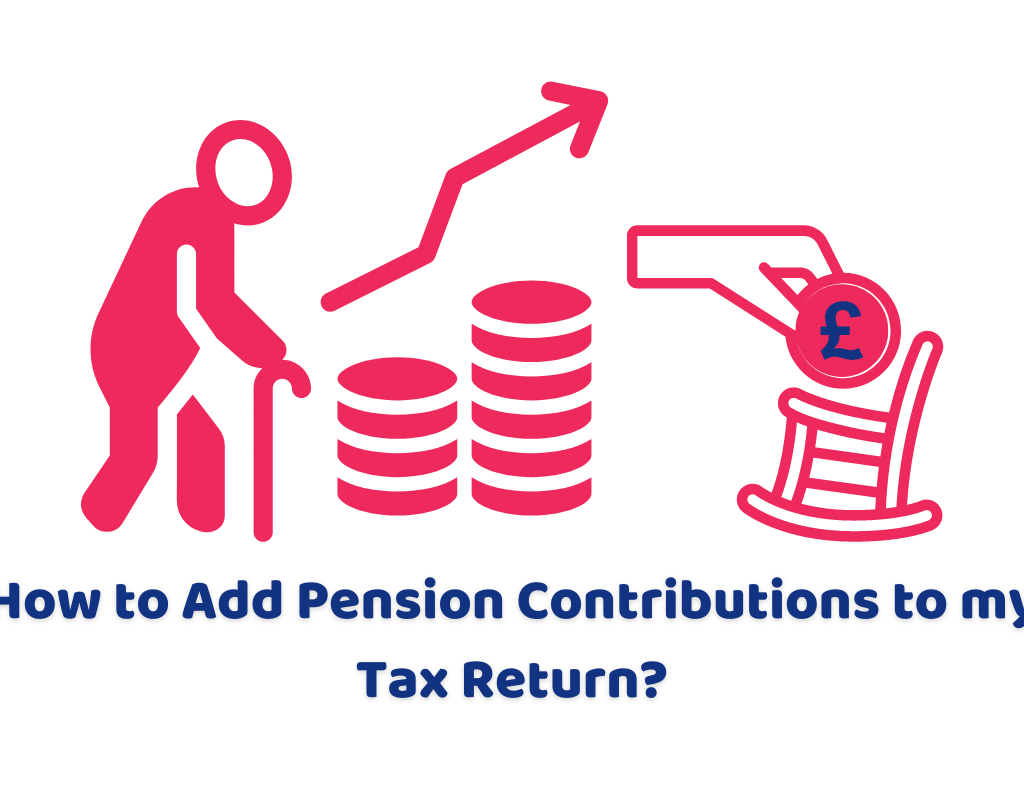Are you worried about adding pension contributions to the tax return? Retirement planning is an essential aspect of personal finance. A pension plan is one of the most important components of a financial retirement plan. A pension plan is a scheme in which an individual saves and invests for their retirement.
It’s crucial to consider the pros and cons of different pension options and seek advice from a financial advisor. In the UK, pension contributions play a crucial part in an individual’s retirement planning. Understand the tax implications of your pension contributions and ensure that you are making the most of your tax reliefs.
Reach out to one of our professionals to get to know about pension contributions to tax return in the UK. Get in touch with us and you will be provided instant professional help!
Pension Contributions Explained
Pension contributions play a crucial part in an individual’s retirement planning. Employees can make contributions towards their pension. Which are tax-deductible at source, and their employer will usually match their contribution.
Deferred Payment Pension (DPP) and Defined Benefit Pension (DBP) schemes are two types available. A DPP is a type of pension plan where an individual defers payment of money into a pension fund. Which is then invested on their behalf, and the benefits are paid at a later stage.
This type of pension plan is typically paid in the form of a regular income, and the amount paid is based on a percentage of a person’s salary. On the other hand, a DBP is a type of pension plan where the amount of pension is determined by a set formula.
SIPP allows them to invest in stocks, shares, and other investments that are not available in a company pension scheme. They can make contributions to the SIPP plan. These are tax-deductible at source, and they can also claim relief on their income tax, which can save them money in the long run
Do I Need to Report Pension Contributions to the Tax Return?
The amount contributed to the pension plan is deducted from the gross salary before tax is calculated. Which reduces an individual’s income tax liability. This is commonly known as salary sacrifice. It can be used to make contributions towards certain types of pension plans.
Tax returns are handled by your employer and the pension administrator. However, if you are self-employed, you may need to report these contributions on your tax return. You are responsible for making your pension contributions and are not required to report them.
How do you Calculate the Amount of Tax Relief you may be Entitled to?
Your income tax rate and the type of pension plan you are contributing to can affect the amount of tax relief. If you are an employee and making regular pension contributions through your employer, the amount of tax relief you are entitled to be based on your income tax rate. For instance, if your income tax rate is 20%, you will get a tax relief of 20% on your pension contributions.
If you are a higher-rate taxpayer, which means you pay a 40% or 45% income tax rate. You can do this by filling out Form R40, which can be obtained from the HMRC website. The extra tax relief will be calculated based on your income tax rate and will be refunded to you by HMRC.
What if I Forgot to Add my Pension Contributions to the Tax Return?
If you forget to add your pension contributions to your tax returns, you may be charged interest and penalties by the HMRC for non-payment of taxes. In some cases, you may also face penalties for late payment of taxes.
If you have forgotten to include your pension contributions on your tax returns and you receive a letter from HMRC. This is to ask you to pay the outstanding tax and penalties. You should immediately contact the HMRC and arrange to pay the outstanding amount. You can do this by logging into your HMRC online account or by calling their customer support line.
Interest and penalties are calculated on the outstanding tax due and may accumulate over time. Therefore, it’s crucial to act swiftly and pay the outstanding amount as soon as possible to avoid any further penalties. Remember that HMRC may make allowances or reduce interest and penalties in some cases.
Particularly if you can prove that the late payment was not due to wilful default or neglect. It’s essential to provide all evidence required in such situations to support your case.
Final Thoughts
To sum up the discussion about adding pension contributions to tax returns, we can say that pension contributions play a crucial part in an individual’s retirement planning. It’s essential to carefully consider the pros and cons of different pension options and seek advice from a financial advisor. Additionally, it’s crucial to understand the tax implications of your pension contributions and ensure that you are making the most of your tax reliefs.
As an employee, you may not need to report your pension contributions on your tax return. However, employees who are making pension contributions through their employers will need to ensure that the amount included in their P60 statements is correct. This will help you to minimise any potential risks and ensure that you are receiving your full tax benefits.
Get in touch with our young, clever, and tech-driven professionals if you want to choose the solution to tax burden or accounting problems in the UK for your income. We will ensure to offer the best services.
Disclaimer: The information provided on AccountingFirms.co.uk is for informational purposes only and should not be considered as financial advice. Always consult with a professional accountant to ensure compliance with UK laws and regulations.

